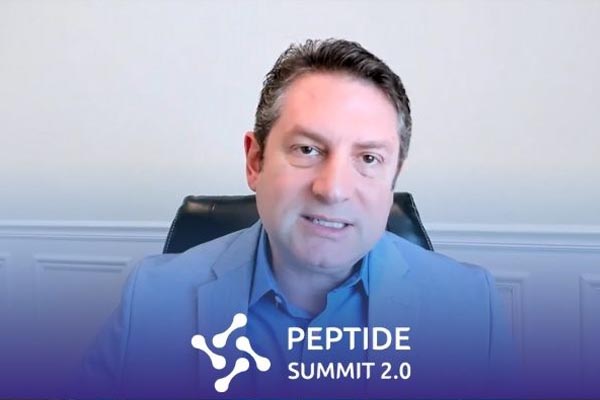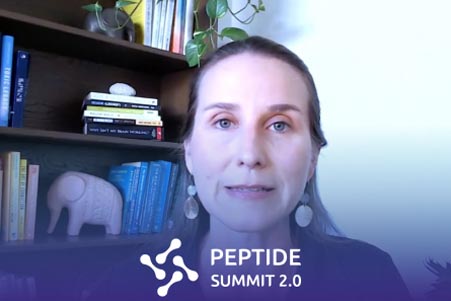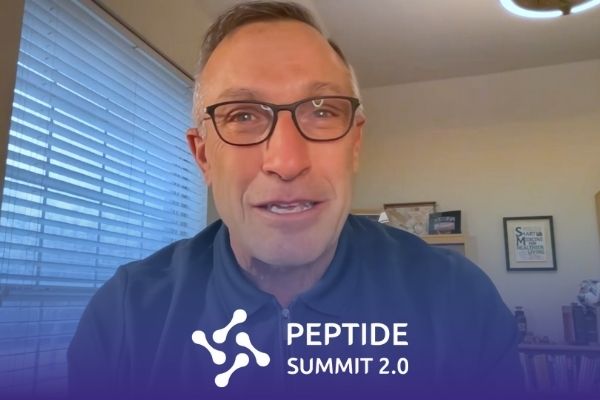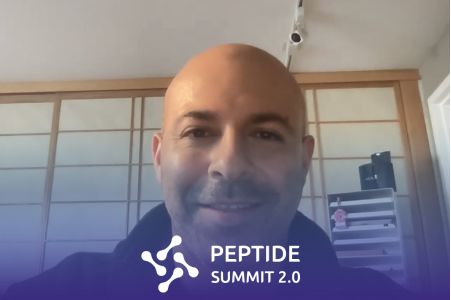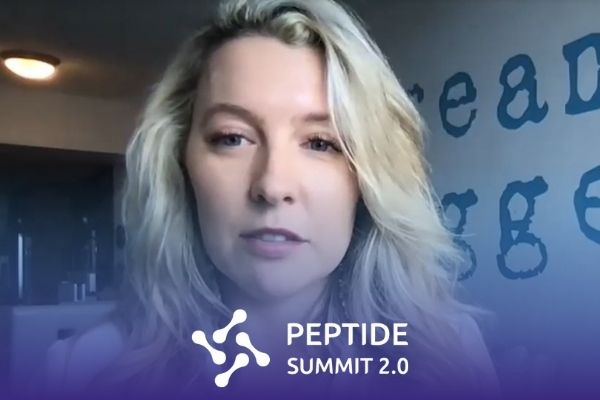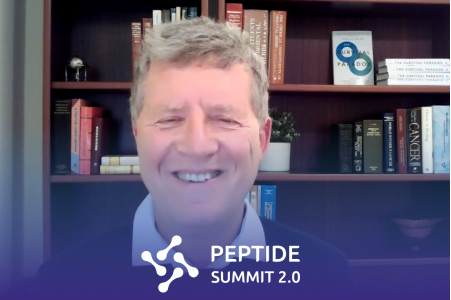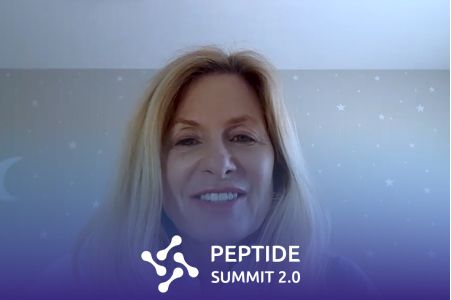Join the discussion below

Dr. Cook is President and Founder of BioReset® Medical and Medical Advisor of the BioReset® Network. He is a board-certified anesthesiologist with over 20 years of experience in practicing medicine, focusing the last 14 years on functional and regenerative medicine. He graduated from the University of Washington School of Medicine... Read More

Paul Barattiero has lectured across the world over the last 22 years. 12 years ago, he set out to educate the world on the vast benefits of molecular hydrogen. His message has focused on the critical role of molecular hydrogen (H2) to reduce oxidative stress and inflammation. His lectures present... Read More
- How hydrogen affects peptides
- How our body is designed to make hydrogen gas
- Why our bodies lose the ability to make hydrogen gas
- What we can do to reestablish the gut biome an restore proper gut function
Matthew Cook, M.D.
Hi, welcome to the Podcast Summit, and today I’ve got Paul Barattiero. He’s Italian, partially, like me, and he’s a super amazing person. I got a chance to meet him at a conference, and had a lovely dinner together, which I really enjoyed, and I learned a lot myself at that dinner, and so we decided it’d be great to have Paul come on the summit, and talk to us about hydrogen water, and how hydrogen affects peptides, and what’s happening with that. So he developed the Echo hydrogen water system, and I’ve tried it, and a lot of my friends actually have it, and so they’ve been kind of telling me about Paul and his great products for a long time, so I’m delighted to have you on this show. Thanks for being here.
Paul Barattiero N.D., CHS, CNHP
No, it’s my pleasure. It’s an honor, thank you.
Matthew Cook, M.D.
So well, tell me, so the title is How Does Hydrogen Affect Peptides? What’s happening with that?
Paul Barattiero N.D., CHS, CNHP
So, hydrogen of course, really fundamentally, when we get down to the brass tacks, the body is built of carbon hydrogen chains, right? So whether it’s proteins, or it’s a amino acids, or peptide bonds, hydrogen’s involved in all of this. So I think most people understand when it comes to amino acids, and when it comes to proteins, they’re folded, right? That’s how they become stronger in the body. That’s how they are changed. And hydrogen plays an extremely beneficial role in the strength of proteins and amino acid bonds when it comes to the body, and funny enough, when hydrogen’s involved, it keeps it away from water, so they’re almost segregated where they can continue doing what they’re doing, and be resistant to water. So fundamentally, naturally occurring peptides are greatly affected by hydrogen, because the hydrogen bond strengthens them, and all proteins and amino acids, you, when you look at those diagrams, you see hydrogen bonds all throughout, and so without that, they wouldn’t be able to stay together very well. Now, I was just doing some research, and it’s interesting from an electron chain transport. When we talk about time, when we talk about getting information or electrons through the body which are critical for a lot of reactions in the body, last year, April 2021, University of California Riverside, they published a study with an international team of researchers, and they observed for the first time a picosecond charge transfer mediated by hydrogen bonds in peptides.
So I think this is very specific to understand that a picosecond is 1 trillionth of a second, and this is 1 million times faster transfer of electrons through the chain than what was thought possible. So these kind of things are, we’re just learning, and we’re just starting to understand that hydrogen has a tremendous benefit when it comes to peptides, when it comes to transfer of electrons in the body, which, again, is critical. But understanding that peptides in general, when you’re talking about these amino acids, there’s, they are dependent upon hydrogen when it comes to the body. Now, this is where my work comes in. What I do every day in my life is educate people that you should have hydrogen in your body. And so naturally, we wouldn’t worry about it, because you should be producing up to 10 to 12 liters of hydrogen gas per day in the gut when you ferment foods, right? I mean, this is what flatulence is. You have methane, you have hydrogen gas, sometimes sulfur, other things based on diet, but the reality is we have, or we were designed to have a hydrogen generator in our body because it’s so critical to life. Every biomolecule, over 200 biomolecules have been shown to have regulation by hydrogen gas, so pretty much every system in the human body is regulated or modulated for the signal modulation by hydrogen gas. It’s that critical, and peptides are one of the aspects that benefit from hydrogen. The problem really comes with the fact that when we have gut damage, and I think most people are aware, it’s been talked about sufficiently, gut damage, but I don’t know that people truly understand the real effect of gut damage, because we’re talking about immune function. We’re talking about simple things like stomach acid not being able to be made if you don’t have hydrogen, right? HCL, if you take out the H, you don’t have HCL, you don’t have hydrochloric acid. The same thing is true when we come to naturally forming peptides, or amino acids, or proteins in the body. They, those bonds are very much dependent on hydrogen, and so we have to have these hydrogen bonds.
So if people didn’t have dysfunctioning guts, if, and I believe it’s 97% of the population. I know that sounds scary and crazy, but I really believe the vast majority of the population have some level of dysfunctioning gut, and I think it’s more serious than, than people understand. And if that’s true, then people are walking around with very low immune function, maybe around 30, 35, 40% immune function in the body until we restore the gut. And the way to restore that is electrically, right? We need to restore the epithelial tissue of the gastrointestinal tract. If we want to change the biome and the terrain, then we need to do that electrically, because we need to have a negative 300 millivolts of electrical potential in the tissue of the gut. And we know through study that that will selectively stimulate anaerobic microflora, and within anaerobic microflora are these amazing hydrogen trophs which convert short chain and medium chain fatty acids, and also fiber into hydrogen gas. And the beautiful part of that story is that these hydrogen trophs, they consume 30% of the hydrogen gas they produce for their own energy source. That’s really cool, right? And then the other 70% goes into the body to regulate or signal modulate many different pathways. So I first wanna help people understand that you should be producing hydrogen on your own, therefore your peptide bonds, your amino acids, your protein bonds, all these things that are interrelated would be strengthened and would be improved by hydrogen. But because we don’t really produce hydrogen the way we should, I developed the water system as a delivery vehicle for hydrogen gas and to repair the gut.
Matthew Cook, M.D.
Okay, so then A, that’s amazing, and catch my, like, I totally support everything that you just said. And then B, it’s interesting for people who were thinking about this, then when you think about what goes wrong in the gut, one of the first things that can go wrong, and I think it’s almost like a bifurcation when we start to think about healing the gut is the colon is our fermentation factory, and when bacteria from the colon start to try to get ahead of everybody else in the food line, and then they crawl up into the small intestine, then they can live there, and then they can do fermentation. And now, interestingly, a good, there’s something called too much of a good thing, Too much of a good thing in the wrong place, right?
Paul Barattiero N.D., CHS, CNHP
Yeah, SIBO, right, exactly.
Matthew Cook, M.D.
So then if you have bacteria living in the small intestine, and then one of the things we’re always doing is we’re checking to see if they have SIBO, and then one of, this, I just say this kind of ties some things together for people. Then one of the things you can look for is you can see people will make, they’ll make hydrogen gas, and so then we do a breath test, where we give them lactulose, and then those bacteria will ferment that, and they can either create methane, or they can create hydrogen, and then we find that, and the small intestine’s only about as big around as my finger and so as a result of that, if you create gas there, that’s a problem. It causes leaky gut. Undigested food leaks into the bloodstream. But one of the other principles that I’ll tell you is that what you said about the battery is a 100% correct. And if you, if there was one principle in medicine, it would be that if you maintain that electrical charge in cells, if you maintain that battery, that becomes the potential that drives all of these other biochemical and biomechanical reactions in the body. So then, so then I love that, so if, but if the colon’s actually doing what it’s supposed to be doing and making that gas, then you’re gonna have a good, you’re gonna have that nice electrical charge on those cells, and those cells are like, crucial cells that do a lot of good stuff, but then you say, “Well, we live in America. We live in the modern, inflammatory times, and all of these things have happened.” So then tell me about the water, and then how that’s a way to kind of help support if we’re not making enough of the gas ourselves.
Paul Barattiero N.D., CHS, CNHP
Yeah, it really comes down to terrain and biome, which I think people have heard those terms before, but I don’t know that they really understand what that means. To have the right biome, you have to have the right electrical charge. Otherwise, we’re just bandaiding constantly with probiotics or whatever, so, and bandaiding is fine, it’s just very expensive, and it’s not really fully functioning. What we really need to do, as we both have just illustrated, is we need to get the electrical potential in the tissue correct, and then stuff will stay where it’s supposed to. It won’t be trying to move all over and find a new home, right? It won’t be trying to figure out where can I exist, and then you end up with problems. So one thing that the water does, so when it comes to SIBO, you know, when you use lactulose, that’s the most reactive sugar that gets hydrogen built, right? That’s why we use lactulose, because at least, if they’re only partially functioning, they can still make a lot of hydrogen with lactulose. But with someone with SIBO, if you put hydrogen in there, then you’re gonna have inflammation, and you’re gonna have issues, because all of a sudden those bacteria are like, “Thank you very much,” and they’re a little bit over reactive. So what’s a little bit interesting is when you’re creating the, what’s called the ORP, the negative electrical charge in the water, you’re also producing hydrogen, and it’s difficult to get one without the other.
And so what I tell people who call and say, “I have SIBO,” or “I have gut issues,” and, you know, “I’ve been through the ringer, and I have never found anything that works for me,” and I’ll say, “Look, we have something that will work, but you need to be prepared for some pain. You need to be prepared for some discomfort.” I would use that word, because as soon as you put hydrogen in, you’re gonna have some inflammation issues, because you’re getting it in, and it’s gonna go in, and it’s gonna be picked up by those organisms in the colon, so, and in the small intestine, but if they’re willing to go through a short window of discomfort, then we can get the terrain built where it’s supposed to be, and then everything will go back to normal. And what normal is, is a small amount of aerobic bacteria, and a large amount of anaerobic microflora, and this will change a lot of things. When we get the bacteria mixed, or balance proper again, now, instead of having food cravings that are carbs and sugar, we’ll have food cravings that are fiber, fatty acids, naturally occurring foods that the body is supposed to have, because the bacteria that’s in there is the one that’s driving us what we eat. I think, it’s not you, so don’t feel bad. It’s your bacteria that’s making you eat the way you eat.
Matthew Cook, M.D.
That’s a, that is true. That’s why they say, you know, and you can almost sort of tell people who have, it’s a little bit of like that look of the classic beer belly, visceral adiposity. There’s a fermentation factory in there, and it wants more carbs. You know, those yeast living in there want more carbs. And they say, there’s an idea that almost like they have their own consciousness, and that consciousness kind of takes over your consciousness.
Paul Barattiero N.D., CHS, CNHP
For sure, well, it definitely it’s like a host, right? It really does influence us more than people care to want to think about or admit, and I would say a lot of the anxiety, depression, emotional issues that people suffer from, if they only could understand it really has to do with the bacteria in their gut, and blame themselves. So I want people to feel good about themselves and know that literally, emotional changes, anxiety, depression, things like this could come simply by the bacteria in your gut, so not that that’s our topic today, but hopefully, that’s a little pearl of wisdom for you.
Matthew Cook, M.D.
Yeah, no, 100%, and so then since we’re on peptide summit, and for us, as we’ll, and we’re gonna keep going on this, but then, so then a lot of times in working with somebody, all of a sudden you find out, “Oh wow, they’re SIBO,” and so then that’s kind of a little bit of a fork in the road, and then if you don’t have SIBO, then I can take your hydrogen water, and drink it to my heart’s content, and that’s gonna slowly start to do good things to build me up. If I do, things to think about would be A, try to get a diagnosis, and so that would be like that SIBO breath test, and there’s some upgrades on it, and you want to be able to see if you can look at hydrogen and methane, so then that’s a good one. Then in terms of treatment, a lot of times we’ll do refaximin, and so then that’s an antibiotic that you can take. A lot of people are afraid of antibiotics, but that one less so, because it gets all absorbed in the small intestine, and it doesn’t make it to the large intestine. So often we’ll combine that with herbals like berberine, or an oregano, and so often we’ll do something where we’ll do an herbal for maybe six weeks, and then we’ll do the rifaximin. There’s a peptide that’s an antimicrobial peptide called LL-37, and so sometimes we’ll have people do that subcutaneously, and so then that’s a lower dose range, like, maybe 50 micrograms a day, or 50 to 100 micrograms, maybe even once to twice a day, depending on someone’s weight. Sometimes people will take the immune peptides, like thymosin alpha one, and often people will take that over a six to eight week period, and so then they’ll start on an immune peptide start, and probably potentially two, and potentially one or two herbals.
And so then what we, and interest, and in addition to that, sometimes we’ll give people, there’s an oral formulation of LL-37, so then imagine you have a fairly robust approach to that, get that going, and then take rifaximin for two weeks, and then keep going with that approach, and then as they start to get through that, and then there will be times when some people will have to take more than one course of rifaximin, so we’ll leave them on a GI reset sort of through that period. And then you said something that is interesting, the, those bacteria can ferment fiber to make gas, so sometimes we’ll have, ’em go on a lower fiber diet for that initial period, and then have, in that initial period, have ’em do a low FODMAP diet, or a specific carbohydrate diet. These are just some tag words. Interestingly, my sort of philosophy is that there’s, it’s almost never one thing. It’s almost always, for complex problems, it’s almost a constellation of five or six things, and then the sequence is real important. And so like this for SIBO, it’s like, this challenging thing, and yet, if you do a multimodal comprehensive approach, and you do all of these things, and then after you do that, one of the crucial most important things to do then is to say, “How are we gonna begin to reset the colon, and then reset that bacterial charge at those cells?” So take me through the water, because then that becomes the home run, and we’ve been doing that for our patients also. We’ve been giving ’em hydrogen in different sources. So tell me how would be a couple different ways to do it, and then talk me through the biology of what’s happening there in the colon.
Paul Barattiero N.D., CHS, CNHP
That’s great, so, and by the way, I love what you said, because that would be a better way, rather than telling someone, “Hey, you might have some discomfort,” let’s get it cleaned out up chain, and just focus on the proper area of the gastrointestinal tract, where we want hydrogen being formed, which is well after. So anyways, what I would say, it comes down to the electrical charge, and the way the water accomplishes that, when the water flows through the machine that I developed, we have a proprietary module that separates water molecules and just harvests the hydrogen and oxygen gas. So the oxygen we send back out to the atmosphere, the hydrogen we’re actually taking that, and we’re injecting that out of the chamber to another stream of pure water. We like for people to use distilled or reverse osmosis water, because at least they’re not adding a burden onto their system. So we’re literally taking H2, or hydrogen gas, and ejecting it out of the chamber, and mixing it, almost shearing it off with another purified water. And then we take it through a dissolving chamber, what would increase the dissolving, the gas that would be dissolved, you know, by volume. And so whether you call it an entry circuit, or dissolving chamber, you know what I’m talking about, but the reality is we’re working that through, and then that comes out, that’s what people are drinking. In addition to the hydrogen gas, the ORP, what’s called oxidation reduction potential of water has been changed to a positive electrical charge to a negative electrical charge.
And our goal is to get it above that negative 300 millivolt so that when it gets through the stomach, through the duodenum or duodenum into the intestinal tract, you start to bathe the tissue in that electrical charge, and it does transfer. And so, again, there’s studies from Russia back many years ago showing that if we get the gut anywhere near negative 300, negative 400, or anything negative at all, you start to reestablish that terrain or biome, and you end up with proper fermentation, because most people have improper fermentation. And you can go back to 1950 to 1965, the Japanese Ministry of Health and Welfare did a human trial for 15 years, and they proved the same thing, which was that electrolytes reduced water. Using electrolysis will change water electrically so that it cures what’s called improper fermentation in the gut. I believe a lot of food allergies, and a lot of issues are because of improper fermentation in the gut, and so this is the way to accomplish that. We do it it through delivering hydrogen in the water, and also electrical potential to the body. That is what we’re doing, and at the same time, we do not change the pH of the source water, because we don’t want to change the pH of the source water. I know there’s a craze out there, and people still believe it, even though it’s been and proven wrong, that somehow these higher pH waters benefit the human body, but they, in fact, do not. We want to change pH inside the body. That’s totally different.
We need minerals, and we need different things for that, so what we do is we dissolve H2 gas, and we change electrical potential after we’ve purified the water without changing the pH, because you don’t want to put that burden on your stomach, because your stomach is a 4.0 pH environment. You don’t want to put a nine pH substance in there, because now you’re forcing the body to produce HCL constantly, and it’s too much of a burden. So that’s what we’re doing. We do see people with gluten and dairy issues within two weeks. You could do it much faster with the protocol that you’re doing, and that’s what I love about what you’re doing, and then use the water after that as, to stabilize them instead of having to take two weeks, but that’s what we’re accomplishing just with water. We have had some people using, you know, colloidal silver, and aloe vera to drive it into the gut, but I like your approach much better.
Matthew Cook, M.D.
The what I, that’s a big topic that you brought up on water, and I actually am going to, I’m actually, I’m gonna say that I’m in 100% agreement with that, and I’m kind of, it’s interesting for the last 10 years, I’ve been trying to figure this out, and I asked every smart person I can, but I, but so then, but I think that is interesting. And if you said what’s the most important choice that you make in the day, it maybe like, what kind of water to put in. And then we got all of this water that’s like, a pH of nine or 10, so that’s alkaline, and so then that, and so then it messes up our pH. So that’s a good, that’s a very, and so you, the pH of your water would be the hydrogen water.
Paul Barattiero N.D., CHS, CNHP
Neutral, or honestly, if they were using a distilled water, it’s gonna be slightly acidic, which it should be. If we look at water, if we look at pure water, it’s around a five to five and a half pH, it’s, and if we look at water coming outta the ground on the Earth, the range is 5.5 to 8.4. The only way you’re gonna get to 8.4 is if it is full of lime, or calcium. When it’s in areas where there is soft minerals in the ground, and it’s run running through the ground, you’re gonna pick up a lot of minerals, but these minerals are unimportant to the body as well, ’cause they’re inorganic, they’re rock, but if you go to Seattle, Washington, or Atlanta, Georgia, or you go to Switzerland, you go somewhere where there’s more hard rock or granite in these mountains, when the water’s running off the mountain, you’re not gonna pick up a lot of minerals, and so these villages or cities that are at the base of these mountains, they have almost zero TDS, almost pure water, equivalent to what would be reverse osmosis water, and yet they’re thriving, and they’re having wonderful health, you know? So this whole thought process that we’ve gotta have minerals in water, it’s false information. And the pH of water is unimportant, and you know that as a medical professional, and we know that that it’s carbonic acid in the respiratory process that governs blood pH. It has nothing to do with what you drink. And let’s just have a little fun, ’cause that’s what we do as medical professionals. Let’s say for a minute, if we were crazy, let’s say that you could drink a nine or nine and a half pH water, and somehow that is a miracle elixir, simply because of the pH of the water, then, and what they say is that affects blood pH, which we know it’s not true, ’cause blood pH is 7.35 to 7.45. It’s not gonna go out of that range, but let’s pretend it was. Well, what would happen if you drank a soda that was a 2.5 pH? You would die instantly, and so this is where you can’t have both sides of the equation.
You can’t say we’re increasing water pH, which has no buffering capacity at all, but then you can’t say drinking a soda’s not gonna kill you. If nine and a half improves your health, two and a half would kill you instantly, you can’t have both of those arguments. So we know for a fact that if we were to put a glass of water with 9.5 pH, this is not by the way, but I’m just using as an example, and we put two or three drops of lemon juice in it, it would plummet the pH, ’cause a lemon is one and a half to two pH, it would plummet the pH. So if lemon juice can counteract with two drops, any of these waters that come out of electrolysis machines, what do we think stomach acid is doing? We know stomach acid is buffering it, and what really happens if you were to drink water out of these alkaline machines, as they’re called, these machines that make water alkaline simply by hydroxides, then what happens is the valve, the pyloric valve in the bottom of the stomach will open and dump that water, because it’s gonna say, “Whoa, we don’t want anything alkaline in this environment. This is an acid environment. We gotta get that outta here.” And you have a very fast gastric emptying into the duodenum or the duodenum, where you have pancreatic juice. It’s totally different pH there, and it’s more suitable. So this is naturally what’s gonna happen, and what I want people to understand is it never was about the pH. It was about hydrogen gas or ORP, which is why there were ever benefits from machines that produced pH. The pH change was a by process, but irrelevant to the body. So what I really did back in 2009, when I figured out, “Oh my gosh, it’s hydrogen. It’s not pH, it’s hydrogen gas dissolved, and it’s the ORP. Let’s make a machine that just does that, and doesn’t artificially or increase the pH unnecessarily.” And that’s really what I did.
Matthew Cook, M.D.
And so then I’m gonna give you another one, but then as you, this is this one’s, that’s a good one. Interestingly, we have a buffer system, and we have a buffer system in the, our main buffer system is in our blood, and it’s basically buffered basically between our lungs and our kidneys, and I was telling somebody yesterday that they say that in medicine, they always say that the dumbest kidney in the world is still a lot smarter than the smartest nephrologist.
Paul Barattiero N.D., CHS, CNHP
Right.
Matthew Cook, M.D.
And that’s a kidney doctor, and so then the idea is we’re probably gonna run around, and have a lemon, and this or that, or eat something. It’s kind of chaos, and so then we need to be able to balance and keep our pH of our blood that’s feeding our brain and all of our organs super consistent. And so I used to do something called a blood gas. So like, I would put a arterial line. So I put, put a catheter in the artery, like, if I was doing like, a liver transplant, and then basically, measure the pH at all times, and then the only people that ever have any issues on their pH, and the only people that need an arterial line are people that are in an ICU where they’re having like, trauma surgery, because you have to have organ system failure before you start to have a pH issue.
Paul Barattiero N.D., CHS, CNHP
The body will guard that so closely. I mean, there’s multiple backup systems, even. I mean, you’re never gonna see blood pH unless you’re ready to go into shock or expire.
Matthew Cook, M.D.
Right, but, and so, but so then interestingly, and this one is a good one for people to begin to conceptualize. So we’re always trying to think of something that we can put into the body that does something good, and so then what are a couple of those things? You know, you hear a lot about NAD. NAD is this vitamin, and it exists in either a high energy state or a low energy state, and so NAD plus is the high, or NADBR, it’s the high energy state, and then NADH is the low energy state. So one of the things that happens when you do an IV of that, or you do a subcutaneous injection, or you take a precursor of it, and kind of drive your levels up over time is that you’re restoring an electrical charge. You’re restoring an ability to donate electrons, and then drive metabolic processes forward. Ozone, technically, ozone, many of the ozone medical procedures would be attempting to do the same thing, and so then, and now, one of the reasons that I don’t like rectal ozone as a modality very much is because ozone is 99% oxygen, and then just like we said, we don’t want fermentation in the small intestine, and we don’t want oxygen in the colon.
Paul Barattiero N.D., CHS, CNHP
That’s right.
Matthew Cook, M.D.
Because we, what you said is a 100% right. We want those anaerobic and faculty of anaerobic bacteria in the colon doing what they do, maintaining that charge. But so, but then fundamentally, I like the idea of doing a little bit of NAD, but an injection, that’s a big deal, and I like the idea of doing peptides to drive mitochondrial function, but then as important, or I’m gonna argue probably more important than that is just the day-to-day things that we do to maintain physiological health so that when we take those things, our body is ideally tuned to have a perfect response to them.
Paul Barattiero N.D., CHS, CNHP
Yeah, I agree, and I would say the reason hydrogen kind of came so popular, there’s 1,138 studies now with 185 human disease models covered. Really it’s because oxidative stress and inflammation are the leading cause of disease in general, and hydrogen, in every one of these 1,138 studies, it starts out saying oxidative stress. Hydrogen is known to reduce oxidative stress inflammation. Now, the first foundational study in 1993 was on hydroxyl radicals in the mitochondrial respiratory chain. If we really look at what’s going on in the respiratory chain of the mitochondria, what’s blocking is hydroxyl radicals where it’s the most cell damaging, or what’s called cytotoxic oxygen radical in the human body is a hydroxy radical. Well, interestingly, when they put in a petri dish, HO, which is a hydroxyl radical, and then they put hydrogen gas, it, of course, forms a water molecule, because they combine, and you have two, you have one H2 molecule, two hydroxyl radicals, you create two water molecules. But in the body that doesn’t happen. What they found is that catalase upregulation actually stops hydroxyl radical formation, and it’s because of hydrogen upregulating.
And so it gets into some pretty amazing signs when it comes to mitochondrial function, and it comes to all these kind of wonderful modulation, signal modulation that hydrogen does. Hydrogen doesn’t do a lot, let’s be honest, but it’s a great coordinator, or a great manager, and it says, “Hey, you go there, and you go there, and you go there,” and it really selectively stimulates certain things, and that’s why hydrogen is called a selective antioxidant. It doesn’t donate electrons, ’cause it doesn’t have an extra electron, it’s neutral. But what it does is it only reaches and reacts with cytotoxic oxygen radicals, for example. It doesn’t reach or react the with radicals that have a physiological role. So there’s so many different things that hydrogen does, and what we need to understand is because it is inherent to the body, there is never has been, and never will be a contraindication for using hydrogen, because your body’s supposed to produce it. If your body produces something naturally when your healthy, it typically is not gonna produce any problems. And if we understand what hydrogen really is, oxygen, as you pointed out is an oxidizer, which is why you would not want to put it into the colon, ’cause you would have a killing effect. Hydrogen, on the other hand, is a reducer of oxidation.
And so you have to have hydrogen and oxygen in life to have what’s called homeostasis, but you have to have both oxidation and reduction. Well, hydrogen is your reduction. Oxygen is your oxidizer, or oxidation. This is what forms the perfect union in the body, and this is what forms water as well. It’s kind of a romantic story, the whole thing, giving credit to the creator, right? But the reality is that’s the story is we have to have hydrogen, and because of chemicals, because of pesticides, because of lifestyle, we lose the ability, our body loses the ability to produce this hydrogen on our own on a normal basis, because if we were producing it, then all the benefits seen in this 1,138 studies would be a part of our life regularly, and Paul Barattiero wouldn’t need to create a water machine. I would find something else to do to benefit society, but we wouldn’t need that. But because we have such significant increase in disease models, issues, and it’s all, I believe, tied to the gut, we can fix these cascade of issues so easily by simply drinking water.
Matthew Cook, M.D.
What do you think about the, you’ll, you hear about people taking the pills that dissolve in water, how do you like those?
Paul Barattiero N.D., CHS, CNHP
I used to sell them. I was, it was me and another gentleman that were the first ever sell them. Going back many years, I sold pallets of tablets. I think they’re fine. I’m not a huge fan. I think there’s a better way to deliver hydrogen to a person. The negatives with the tablets are that it is elemental magnesium that’s reacting in the water, and creating, doing a water separation, however, you’re not getting rid of the oxygen. You’re not, like, in our machines, we’re segregating oxygen and hydrogen, and we’re sending oxygen back to the environment, and we’re just dissolving H2, and so you’re not able to do that with a tablet. And the other problem with the tablets is they don’t fully react. You don’t always have a full reaction of magnesium, and so there’s, you have to clean the container and some other things. What I did when we decided to create our Echo Go, which is a sport bottle, a rechargeable sport bottle, that only costs about the same as two bottles of tablets, but yet you can have it for a long time. You just recharge it like a cell phone, and use it over and over. That’s what I did instead, because I would recommend people put distilled water, or reverse osmosis, or purified water into, and just push the button, and three minutes later, you have anywhere from 1.88 parts per million of hydrogen, which is so, it’s tons of hydrogen. You don’t need anywhere near that anyways. But the reality is you can just take it on the go. You can take it anywhere you want to go, and you just recharge it, and it comes with a charging cable, and it’s really simple. You just pour water in it like any sport bottle. So that’s what I did instead of the tablets. When we discontinued them, that’s what we did instead.
Matthew Cook, M.D.
Awesome. Well, one thing that I think is that the key to health is doing a diversity of a whole bunch of pieces and, you know, peptides are one of those pieces, but then probably more important are what are, what’s all the initial groundwork that we need to do to get our biochemistry working? And on the summit, we’ve been interviewing a bunch of people that I think have important, if not crucial tools that can begin to affect that, and my, I think for me, my holy grail of health is fixing the gut, and so then when I learned about this, and I’ve had quite a bit of exposure to your products, and I now use them now, and I think that they’re an important piece of not just gut health, but then starting to restore this electrical charge, and then I think that bringing that out, and kind of helping people learn more about that, I think it’s gonna very important. So super grateful to have you on the show. It was just educational and awesome, so thank you so much.
Paul Barattiero N.D., CHS, CNHP
Well, thank you, and you know, in addition to everything, there’s huge neuroprotective, and that’s another big thing people don’t understand is when-
Matthew Cook, M.D.
Oh, talk me through that. Talk me through that.
Paul Barattiero N.D., CHS, CNHP
Okay, so ghrelin secretions, when we talk about gastric ghrelin, most people have heard of leptin, but they do not understand ghrelin. Ghrelin is a hormone, obviously, and a master hormone at that. We call it the hunger hormone, not because it, you know, it makes you hungry, it’s ’cause when you’re hungry, it’s released, but what people don’t understand is that it normalizes the brain. Ghrelin goes to the hippocampus, the hypothalamus, and the brain stem to change plasticity, to change normalization, and to balance the function of the brain itself. So we have multiple, there are multiple studies on Parkinson’s, Alzheimer’s, autism, bipolar, schizophrenia, all these serious, very serious neurological issues, showing disease-modifying effects when you have hydrogen water. So we have studies, and it’s not because of hydrogen. In the study, several of them, they point out there’s no striational hydrogen. In other words, there’s no hydrogen gas going to the brain. It’s ghrelin secretions. Now, normally you would produce ghrelin in your gut or in your stomach, that’s why it’s called gastric ghrelin. But when you have a gut that’s dysfunctioning, you are no longer producing ghrelin, and so you end up with neurologic issues. And so now they’re seeing that young boys that are autistic, they have low ghrelin secretion levels, for example. Well, they gave the individual hydrogen, and boom, ghrelin levels went up higher than atenolol, or any of the other things that you would normally do to invigorate or to stimulate gastric ghrelin. Hydrogen gas was four times as much of ghrelin production or stimulation versus atenolol. Even when you combined atenolol and H2, H2 by itself was higher.
So what they showed in these neuroprotectives is that if you wanna have neuroprotective benefits, then you have to have hydrogen in the body. We do, we have a brain map, it’s called Brainmaster. We have a brain EEG equipment, and literally within three to five minutes of drinking a glass of water, you see plasticity, very serious plasticity change, and normalization of right and left brain, or you know, different aspects. I’m trying to make sure I talk in a way that people understand that are watching this. But the reality is you can change the brain landscape in three minutes, two minutes. And probably the most emotional I’ve been was at a doctor’s event where a doctor came up, and he had tremors, and he drank a small glass of our water, and he came back, and his hands were still, and he said, “I feel tingling in my brain, what the heck happened?” And I said, “You haven’t had ghrelin secretions in a while. It’s modulating brain.” I said, “Just wait, in about 30 minutes, you’re gonna feel it in your feet,” and sure enough, he came back and said, “What the heck? I am feeling tingling in my feet.” I said, “Well, you’re just working through the system, and it’s gonna take a little bit.” So again, as I said earlier, hydrogen is the hero, but it’s not the heavy lifter. It’s what we call second messengers.
That’s what hydrogen is signaling is these second messengers to go and do the job they’re supposed to be doing, but because of dysfunction, they’re not functioning, and so hydrogen, and so whether you are producing in the gut, like your natural, or you drink it in water, the body is going to use it immediately, because it’s a tool that it has not had in a while. Some people ask about inhalation, right? Putting a cannula, and breathing in hydrogen. That definitely has benefits, but they’re more limited than when you’re drinking water. We are going to be introducing an inhalation personal device, and a clinical device, simply because people have been told it’s great, but the benefits are smaller compared to water, because when you’re, when the method of administration is water, you’re helping the gut and the intestinal tract, whereas inhalation would not do that. So you get the benefits of blood and lung with inhalation, but you get that and far more when the method of administration is water, because you’re fixing the gut, you’re getting ghrelin going to the brain. If you’re breathing it, you’re not gonna signal ghrelin secretion. So there’s a lot of wonderful things to understand. From a neuroprotective effect, there are many pathologies, and when you see a study on Parkinson’s, and it, and the summary of the conclusion says it has disease-modifying effects, this is very strong language that you rarely see in studies.
Matthew Cook, M.D.
So then if, as for people to think about that, then if you imagine probably the number one expression you hear when you walk around functional medicine meetings is the term gut-brain access. And so then there’s all of this communication back and forth, and so then one thing, there’s this nerve, that’s the 10th cranial nerve called the vagus nerve that is in your brain, and it goes down, and is the signaling and communicating way that our rest and relax part of the nervous system, parasympathetic nervous system turns the gut on. And also what happens is then it can secrete these hormones that can get into the bloodstream that can affect ghrelin. And so then basically, to tie on to the beginning of our conversation, fundamentally, what’s gonna happen is you, by restoring electrical charge and restoring health to the gut, it starts to do all those normal things that it does, which is secreting hormones, and then having all of these kind of good side effects on neurological function. Interestingly, there’s also of a correlation when people have leaky gut, they tend to have leaky brain. And often when you start to fix the gut, that the neuroprotection starts to come back. And so then that’s a crucial one, and then a crucial one to think about how to manage, and get people through sort of the rocky initial moments, but that’s amazing.
Paul Barattiero N.D., CHS, CNHP
Well, thank you, and you know, one thing I’ll mention that if people wanna do research, I think research is key. I think getting educated is key. We did develop a research tool, the best around, and it’s a website, just hydrogenstudies.com. So anyone that goes in there, for instance, I went in and typed in peptide, 17 studies came up showing benefits with hydrogen and peptides, and these are great, great studies, wonderful reads. And so we put this resource there for everyone to be able to utilize. It’s nothing to do with products. It’s simply a research tool where you can segregate by country, by year, by subject. You know, you want human studies only, you want animal studies, you want a zebra fish, and you wanna look at the innate immunity function of a zebra fish and hydrogen, you can see all these crazy studies. You know, the reality is we just want people to be educated, that many of the issues they might, they’re suffering from can be helped by hydrogen gas, and that’s really what our desire is to educate. And so if they wanna research, that’s a tool they can use.
Matthew Cook, M.D.
Well, we may have buried the lead. Does that mean your people should be giving hydrogen water to their dogs a little bit?
Paul Barattiero N.D., CHS, CNHP
Yes, we have veterinarian hospitals and clinics, and we have pet daycares that use our water as their water. We have farms and ranches that use it as well. And what they find is a lot of the organ issues that are happening with the animals go away, liver, kidney, especially go away pretty quickly. And these are daycares. These aren’t medical facilities that are calling me going, “Holy cow, we had sick animals that had, you know, eyes, and issues, and now they’re great and their hair’s growing, and all kind,” and it’s just hydrogen, and so, you know, they need to understand, but we do have veterinarian hospitals, amazing ones that are using and have been using for seven years our water machines for their patients, right? But people need to understand that sugar and carbs is 60% of kibble, and so if we were eating potato chips laced with sugar, we would have 50% cancer in human beings as well, ’cause that’s what animals have, dogs and cats, 50% cancer.
Matthew Cook, M.D.
Isn’t that crazy? So then that, and that’s one of the other reasons that I wanted to have you on is just to kind of think about this whole functional medicine lifestyle is hacking day-to-day life. It’s hacking, you know, today we’re, it’s brought to you unpaid by Epic Bone Broth.
Paul Barattiero N.D., CHS, CNHP
Hey, bone broth is epic, for sure.
Matthew Cook, M.D.
And so then those little incremental things that you do every day, because then those choices then have compounding effects just like investing on the body that sort of pay off over time. And then things that you want to think about particularly is electrical charge, gut-brain access, gastrointestinal health, restoring all of that stuff, and then, and those are the basics, and those are the foundations. And then that gives you sort of something to build on. And so then all of a sudden these choices end up being, I think, you know, relatively inexpensive, and things that really pay off in big ways over time.
Paul Barattiero N.D., CHS, CNHP
Absolutely. It’s a lot less money than having a disease.
Matthew Cook, M.D.
Yeah. Well, thanks a million, and I hope you have an awesome week, and thanks for everything that you do for the world.
Paul Barattiero N.D., CHS, CNHP
Thank you. It’s my privilege and honor, thank you.
Downloads

